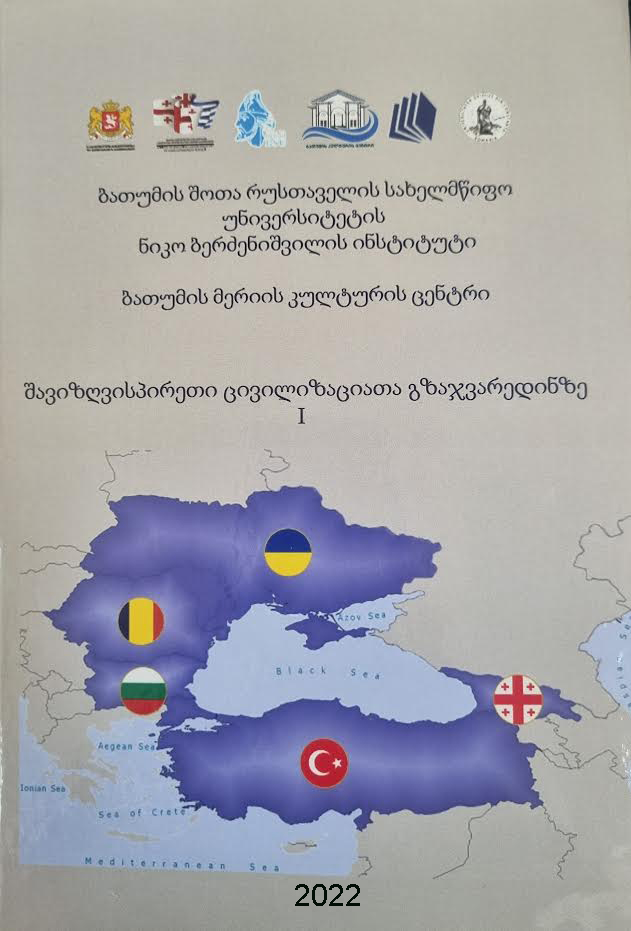The Main trends of Georgian Historiography in the Era of Nationalism and the Concept of Historical Hero
DOI:
https://doi.org/10.61671/bsrcc.v1i.7845Keywords:
The Era of Nationalism, the Concept of a Hero, Georgian Statehood, David Agmashenebeli, Erekle IIAbstract
In the second half of the 19th century, in Georgia, which was conquered by Russia, was born a new approach to historical science and the historical past of the country. The main goal of historiographic research of this century was the struggle for the restoration of the Georgian statehood abolished by Russia, the revitalization of history and the consolidation of the Georgian nation around the national idea and history of the Georgian nation. The memory of the historical past, when the country was strong and united, should neutralize the defeatist syndrome, nihilism and collaborationist sentiments in the Georgian people, at the same time, a reaction should be given to the conscious belittlement of the historical past of Georgia by the imperial ideologists, which they did to complete assimilation of the Georgian nation.
In Georgian historical consciousness was born a new concept of a historical hero.
The Russian authorities had to see the heroism of the kings of Georgia in the past, the dignity of the Georgian state and international recognition. In the press of the national direction (newspapers: "Droeba", "Iveriya", "Tsnobis Purtseli", "Kvali" and others) letters were printed about David Aghmashenebeli, George Brtskinvale, Tsar Iraklii and other Georgian kings, who fought to preserve and strengthen the Georgian statehood to defend the ethno-historical and cultural traditions were encouraged and served as an example for the people in their struggle against foreign expansion. Of special weight was the representation of the personality of David Agmashenebeli as an example of the restorer and strengthener of the state on the brink of destruction. Also, many places were devoted to the display of heroism and public merits of Heraklion II. This last topic was directly related to the attitude of Russia to Georgia, the lack of understanding of the empire - the use of the Treaty of St. George and the steps taken by the Georgian king for rapprochement with Russia. The article talks about the relation of Georgian historical thought to the domestic and foreign policy of King Irakli II, the vicissitudes of the struggle for the throne and the point of view of the Georgian feudal society of the XVIII century on the topic of legitimacy, the context that historians of that time considered within the framework of the theme of the king-hero.
References
ბაგრატიონი, 1983: – თეიმურაზ ბაგრატიონი, ახალი ისტორია, ტექსტი გამოსაცემად მოამზადა, გამოკვლევა და საძიებლები დაურთო ლელა მიქიაშვილმა - საქართველოს ისტორიის წყაროები 33 - ქართული საისტორიო მწერლობის ძეგლები IV - თბილისი - 1983;
„ივერია“, 1891, №11: – პ. ცხვილოელი (პოლიევქტოს კარბელაშვილი),გენერალ-მაიორი გოტლიბე გენრიხის ძე გრაფი ტოტლებენი და ირაკლი მეფე“, გაზეთი „ივერია“, 1891 წელი, №11;
„ივერია“, 1891 წ. № 131: – პოლიევქტოს კარბელაშვილი, „ერეკლე მეფე, როგორც თავისი სამეფოს აღმაშენებელი, მისი ეკონომიური წარმატების მონატრე და მზრუნველი“, „ივერია“, 1891 წ. № 131.
„ივერია“ 1890,1902, 1903: – პოლიევქტოს კარბელაშვილი, მეფე ერეკლეს წერილები, გაზეთი „ივერია“, 1890, №№232 – 236, 249, გაზეთი „ივერია“, 1902 წელი, №№18, 54, 55, 101; „ივერია“ 1903, №№26ტ, 28, 31, 65, 69, 73, 104, 108, 110, 112, 115, 118, 120, 121, 127, 131.
„საქართველო“, 1916, №№123-124: – პოლიევქტოს კარბელაშვილი,„მადანჩა და ერეკლე მეფე“, გაზეთი „საქართველო“, 1916, №№123-124.
სმიტი, 2004: – ენტონი დ. სმიტი, „ნაციონალიზმი, თეორია , იდეოლოგია, ისტორია“, თბილისი, 2004.
სცსა, 1461, აღწ.1, საქმე29, ფურც.10 – საქართველოს ცენტრალური საისტორიო არქივი, პოლიევქტოს კარბელაშვილის პირადი ფონდი №1461, აღწერა 1, საქმე 29, ფურც. 10.
ჩხაიძე, 2004: – ირაკლი ჩხაიძე, ნაციონალიზმის მოდერნისტული თეორია და ქართული ნაციონალური პროექტი („თერგდალეულები“), თბილისი, 2009.
ჩხარტიშვილი, 2004: – მარიამ ჩხარტიშვილი, შესავალი ენტონი დ. სმიტის წიგნისა –„ნაციონალიზმი, თეორია, იდეოლოგია, ისტორია“, თბილისი, 2004.
ჭავჭავაძე, 1986: – ილია ჭავჭავაძე, თხზულებანი, თბილისი, 1986.
ჭავჭავაძე, 1984: – ილია ჭავჭავაძე, ერი და ისტორია (დიმიტრი ბაქრაძის ნაშრომის გამო საქართველოს ისტორიაზე), თხზულებანი, ერთტომეული, შეადგინა მურმან ლებანიძემ, გამომცემლობა “საბჭოთა საქართველო”, თბილისი, 1984.
ჭავჭავაძე, 1984: – ილია ჭავჭავაძე, თხზულებანი, ერთტომეული, შეადგინა მურმან ლებანიძემ, გამომცემლობა “საბჭოთა საქართველო”, თბილისი, 1984.
ჭავჭავაძე, 1984: – ასი წლის თავი ერეკლე მეფის გარდაცვალებიდან, თხზულებანი, ერთტომეული, შეადგინა მურმან ლებანიძემ, გამომცემლობა “საბჭოთა საქართველო”, თბილისი, 1984.
ჯონსი, 2007: – ჯონსი, ფ. ს. სოციალიზმი ქართულ ფერებში, სოციალ დემოკრატიის ევროპული გზა 1883-1917. თბილისი 2007.
ჰროში, 2007: – Hroch, M. `National Romanticism~ Diskourses of Collective Identity in Central and Souteast Europe(1770-1945); Volume Two: Nacional Romanticism – The formation of National Movements, GEU PRESS, Budapest, New York, 2007.














